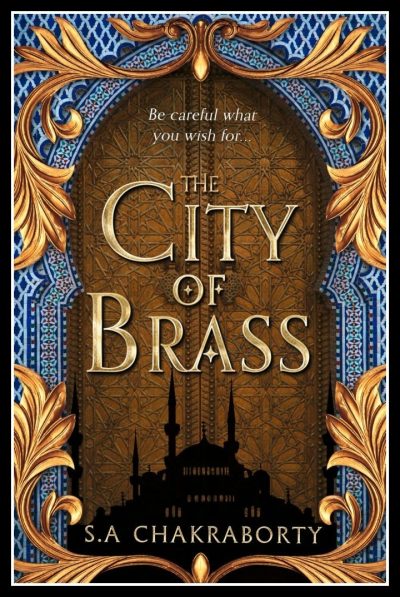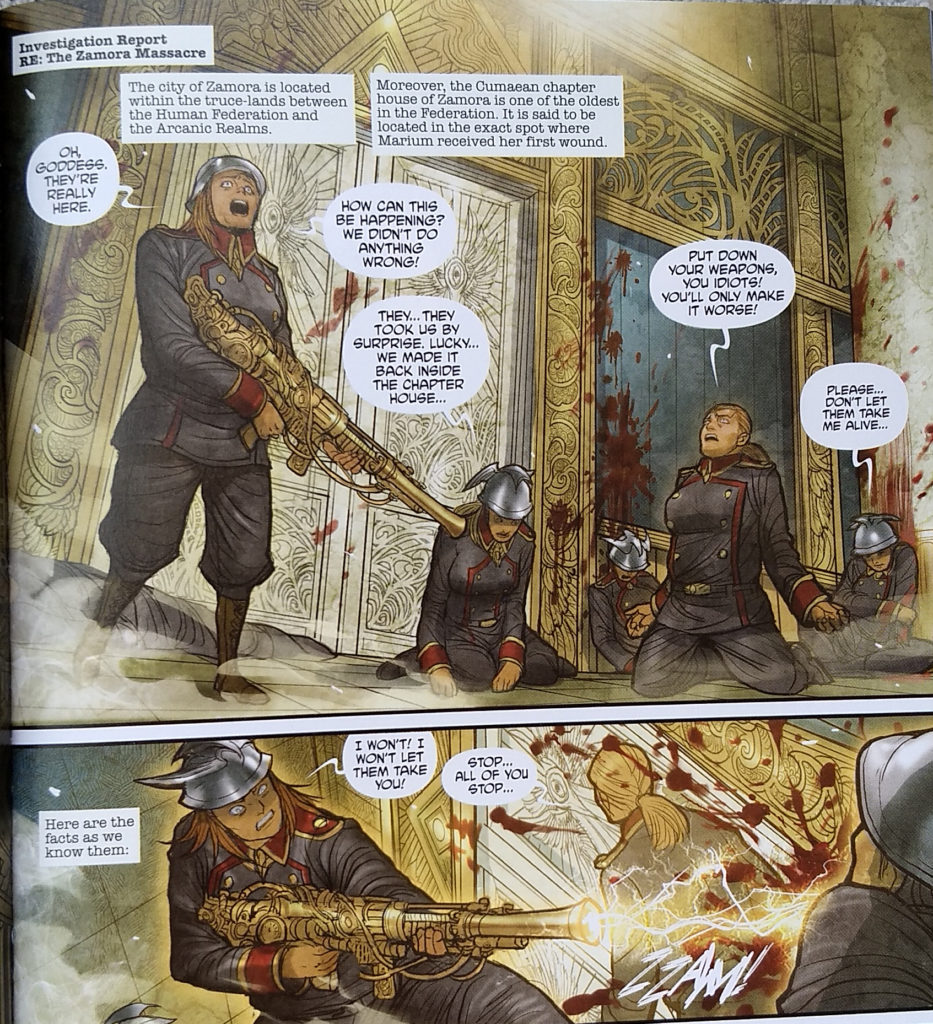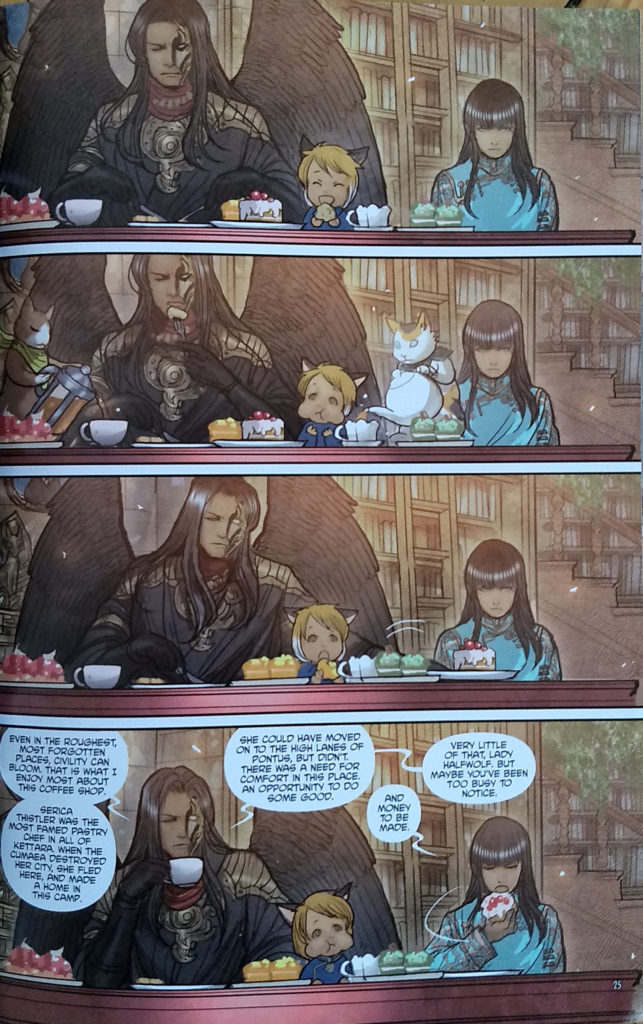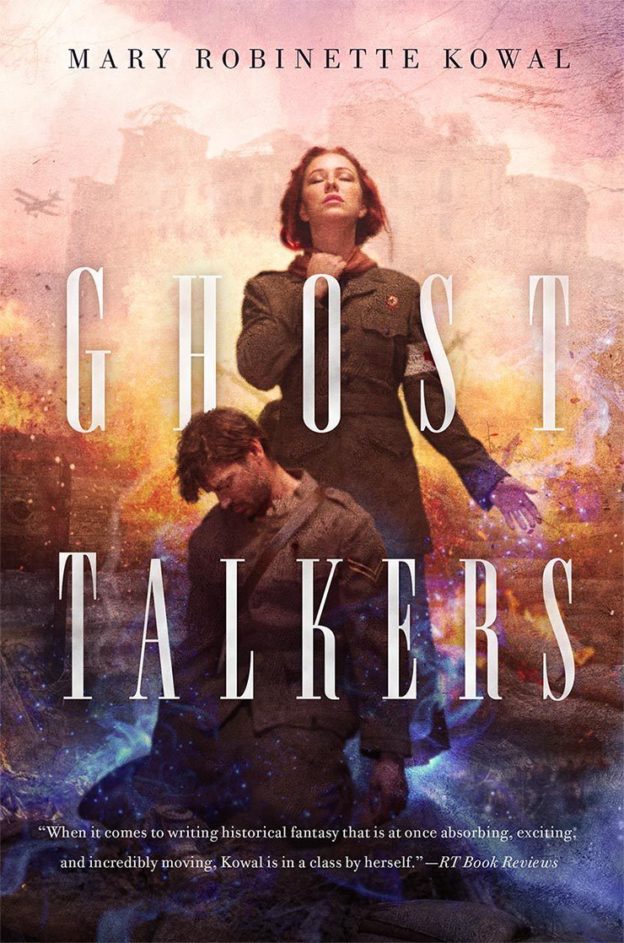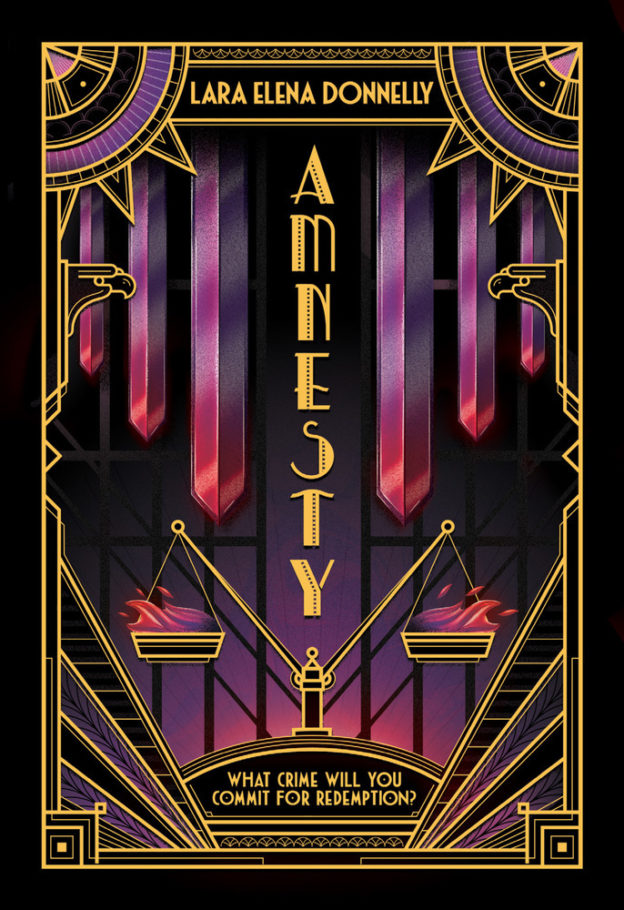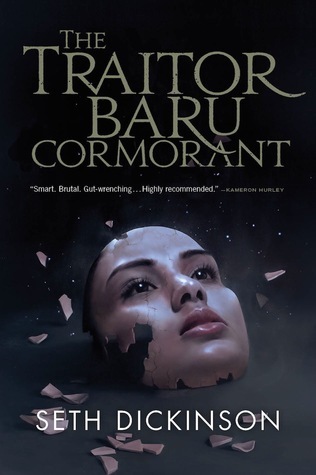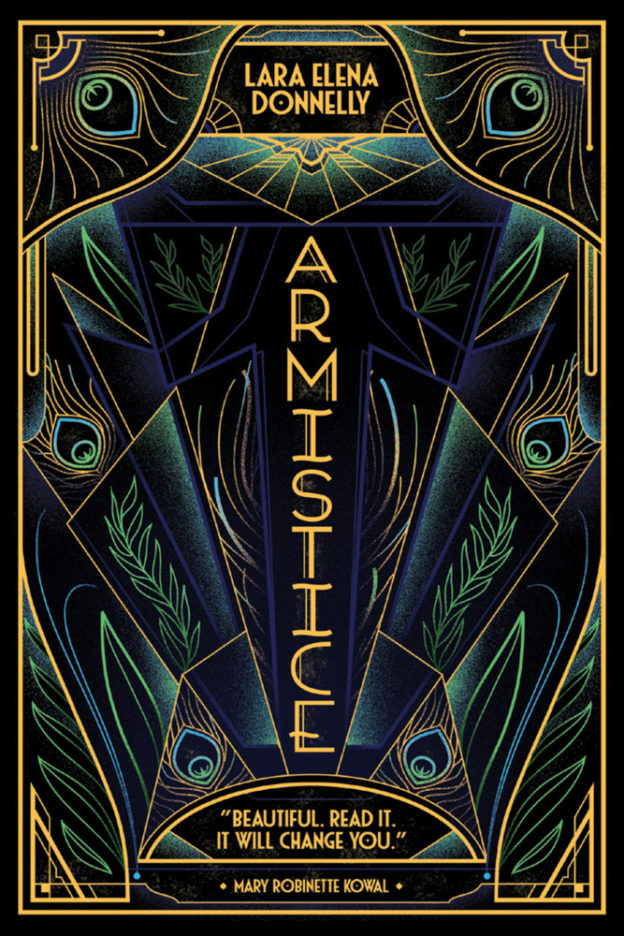I’m so glad to be wrong about a fantasy trilogy. By mistake, I started the Daevabad Trilogy at an awkward place—the beginning of the second book—because I mixed up City of Brass with Kingdom of Copper. At the start of Kingdom of Copper, the three main characters, Nahri, Ali, and Dara, are reeling from the events of the first book. I thought that they were flailing about with no motivation, and that the worldbuilding was too cute. Why was “grand vizier” spelled “grand wazir?” Why should I care what the abandoned hospital in Daevabad looks like? Couldn’t the zulfiqar just be called a magic sword? But about a hundred pages in, the three main characters choose new directions for themselves, and I got sucked in to rooting for them.
Nahri, an orphan teenager in Cairo, discovers she has magical ancestry. She’s not only djinn, but lost djinn royalty. She travels to Daevabad, the magical hidden city of the djinn, where she grapples with court intrigue and her birthright. This premise should be a pile of epic fantasy clichés, with djinn swapped in for elves, but S.A. Chakraborty is cleverer than that.
Chakraborty has a deep understanding of Middle Eastern history—scholar was her original career plan. She draws from Middle Easter folklore about djinn, ifrit, daevas, marids, and ghouls, and all of these peoples have roles in Daevastani society and fraught interactions. King Solomon, who commanded demons in Biblical and Quranic legend, plays an outsize role in their collective history. Disney-style genies, who are obedient and attached to a bottle? They’re real, all right, and the reason is horrifying.
Chakraborty herself is a Westerner, so she takes all that knowledge of Middle Eastern folklore and weds it to her knowledge of the Tolkien-style fantasy canon. The look of the trilogy will be familiar to fans of the genre. These books are doorstoppers with maps in the front and glossaries in the back. There are epic battle scenes and a lot of backpacking.
She knows exactly what she’s doing combining Middle Eastern folklore with high fantasy tropes, especially the trope about magical bloodlines. You know how Aragorn’s ancestors used to rule Númenor dozens of generations back, which makes him blessed with long life and also destined to be the king of Gondor? Or the Targaryens, who used to rule Westeros until another noble family deposed them. The survivors, with their fire magic, want their birthright back. Nahri’s royal family, the Nahids, resembles the Númenóreans and the Targaryens. The resolution of the Nahid situation is so satisfying that it gives me closure about my Targaryen anger.
Nahri, Ali, and Dara are all very human characters, even though they’re technically not. The plot is driven by their gray decisions, and conflict arises from okay people working at cross purposes to each other. They don’t drift, like I thought in the awkward middle of the trilogy.
The Daevabad trilogy has a slow build, but if you stick with it, you get a rip-roaring adventure across the lands of the djinn. Give the world time to soak in, and read the trilogy in the right order!

